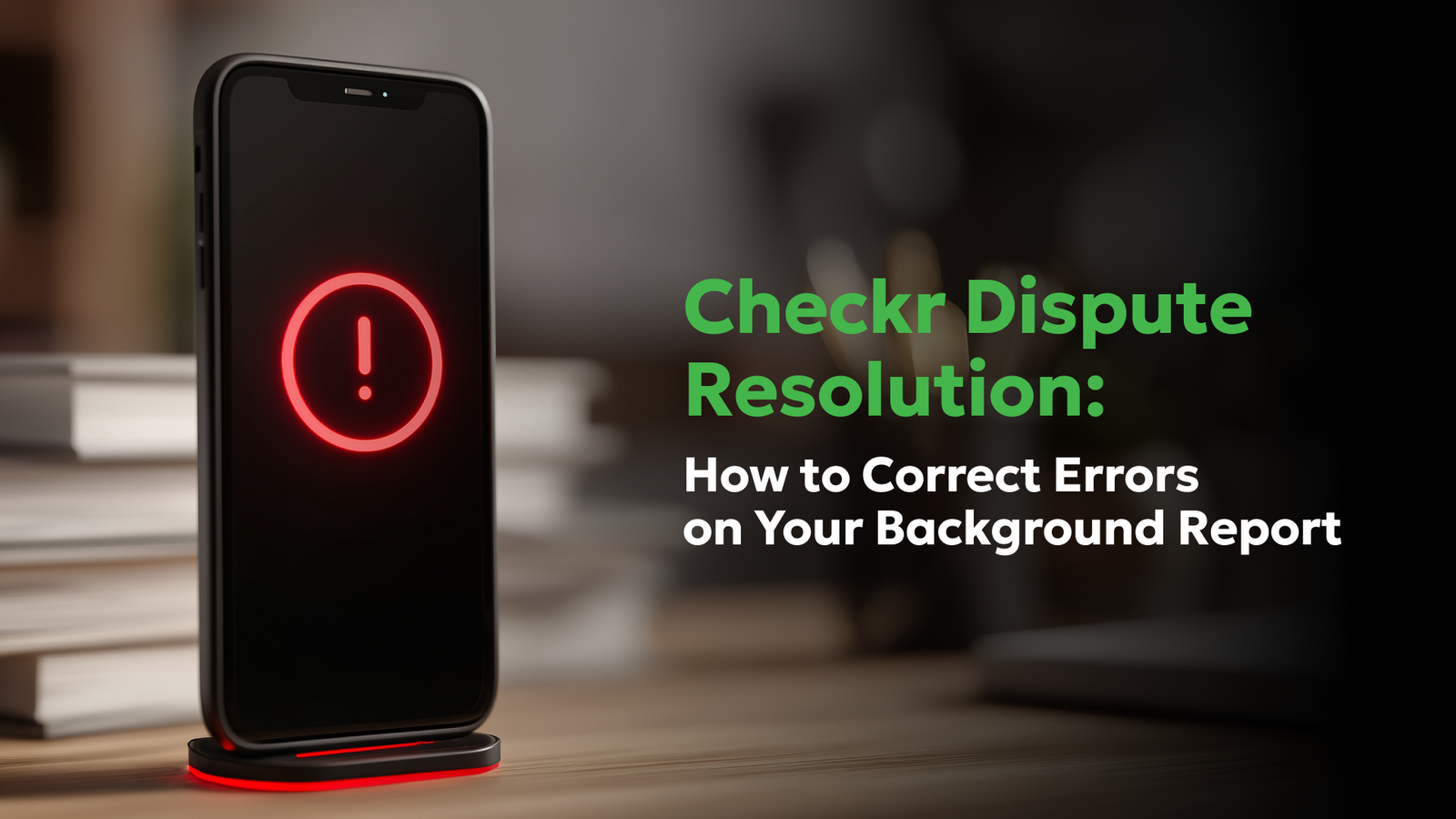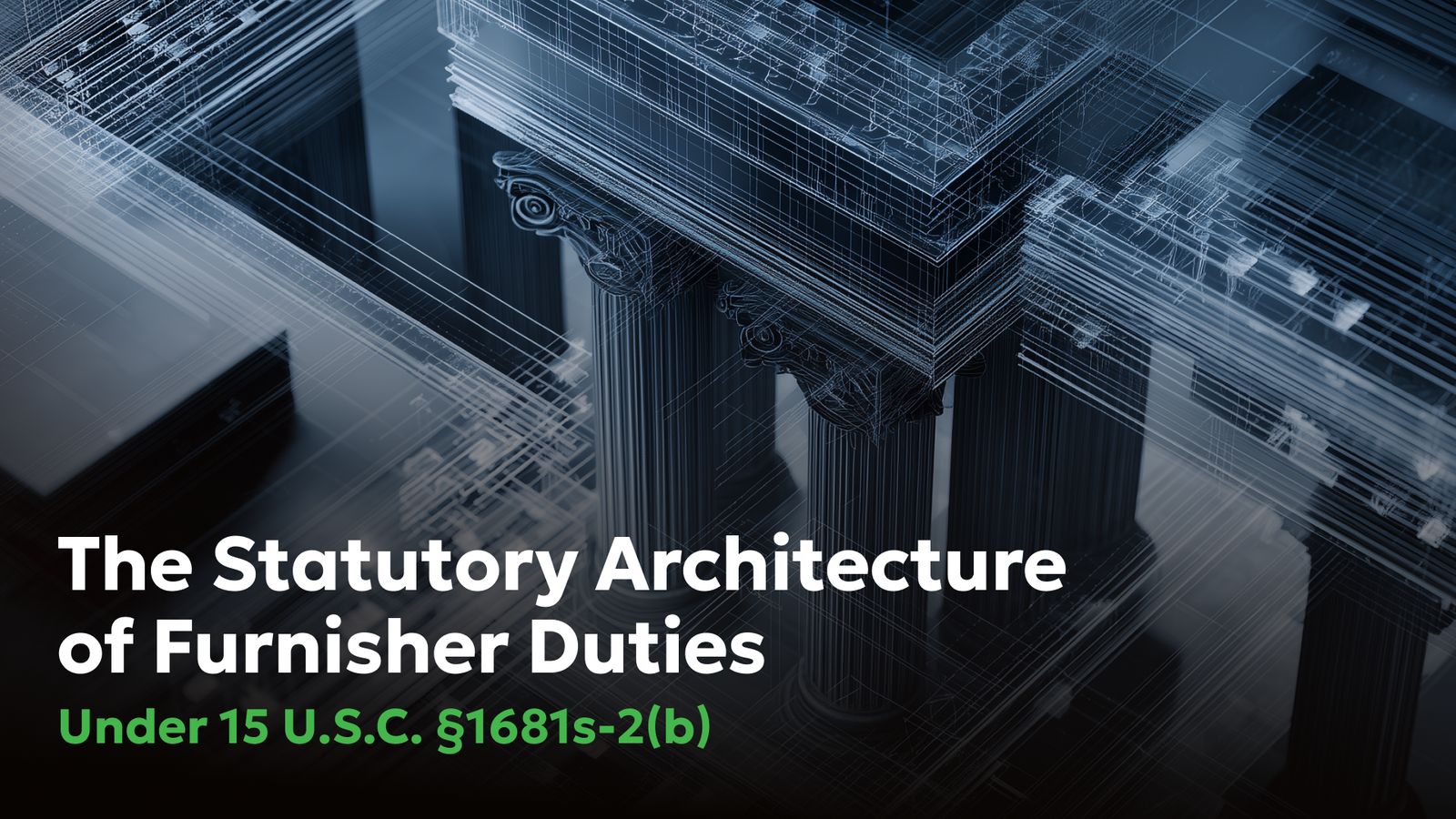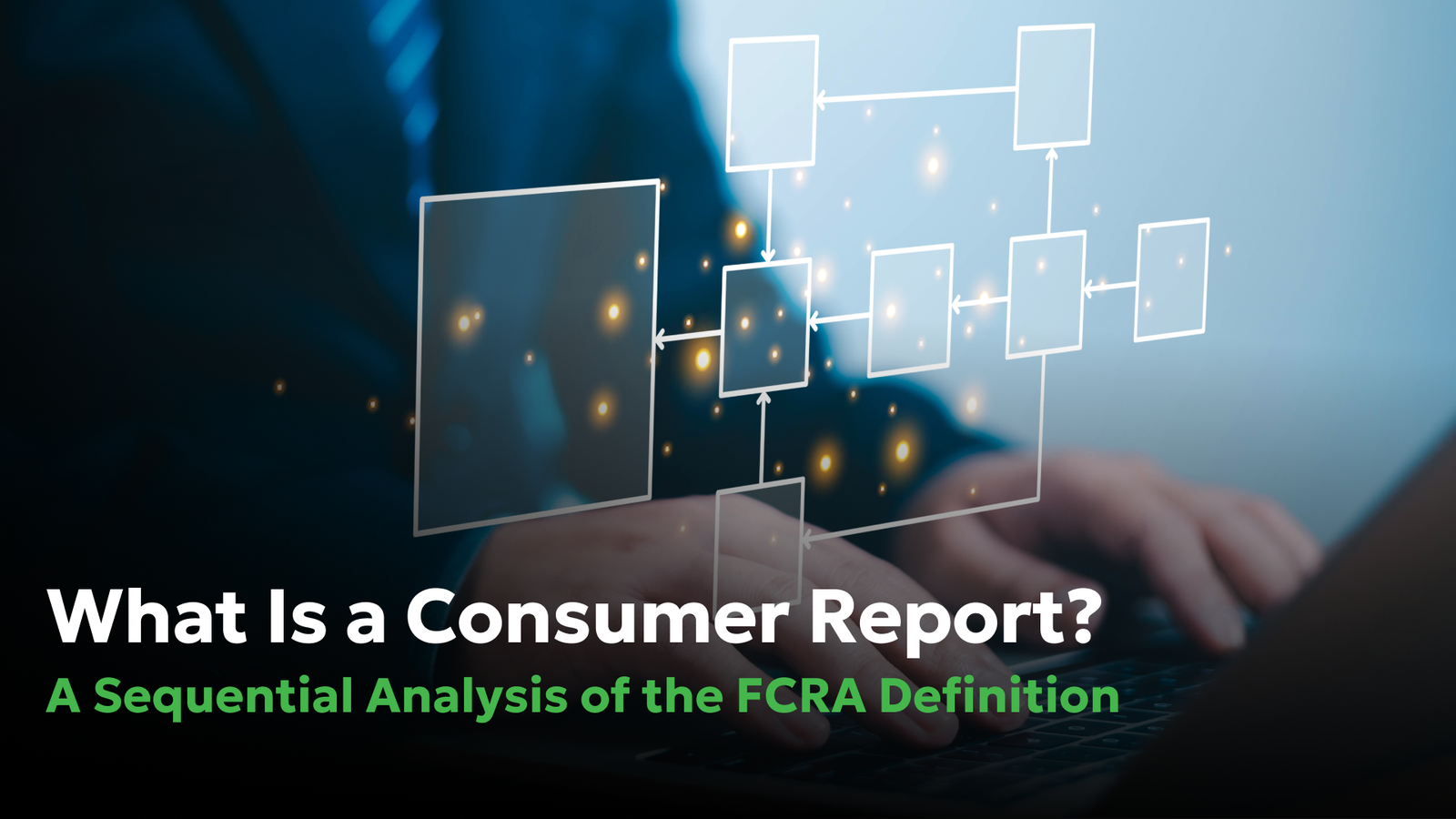Things You Need to Know About Level 2 Background Checks
- Blog
- All about FCRA
Things You Need to Know About Level 2 Background Checks

Does your new employer need to conduct a Level 2 Background Check before you’re officially hired? Here’s what you should know.
A Level 2 Background Check is a more thorough type of background check that employers use to screen applicants for jobs requiring a higher level of trust and responsibility. These jobs require a little more assurance that the applicant is both truthful and reliable, so a Level 2 Background Check will look at more and go back further.
Some jobs require a more thorough, expansive, and in-depth background check of the applicants who want the job. When a job requires some specialized responsibility, provides access to financial information, involves interacting with vulnerable populations, or includes access to classified information, the employer will likely conduct a Level 2 background check.
The background check lawyers at Consumer Attorneys have enormous experience with background checks and background check errors. We’ve learned that even the most thorough background checks from the most reputable background check companies can and often do contain inaccuracies. While every background check error is significant, an error or inaccuracy that disqualifies a job applicant from a job that requires a Level 2 background check can be especially devastating.
This article provides an overview of Level 2 background checks, what they entail, their implications, and how to handle potential errors that may arise in the process.
What Is a Level 2 Background Check?
A Level 2 background check is a highly in-depth background screening process commonly used for positions with significant responsibility and trust. A Level 2 background check is more detailed than a standard background check, may look further back than the usual 7-10 years, and will likely examine more criminal databases than a standard background check.
Jobs in the federal government, the defense and financial industries, the healthcare field, and education will typically require a Level 2 background check.
What Does a Level 2 Background Check Show?
Understanding what a Level 2 background check consists of is essential for both employers and job applicants.
In-depth Criminal History
This includes arrests, convictions, and any pending charges in federal, state, and local criminal databases. The Level 2 background check will also include a criminal background check to ensure that individuals in sensitive roles have a clean and trustworthy record. It’s important to note that this type of background check can include an FBI check, which involves fingerprinting and access to national databases.
Also, a Level 2 criminal check will likely include checks of all state criminal databases—not just those in the states the applicant identified as having once lived in.
Sealed Court Records
While most background checks may not reveal sealed records, a Level 2 background check can access these under certain circumstances. Sealed records might still be visible for specific roles that require a higher level of scrutiny, such as federal positions or jobs involving national security. If you're wondering, “will a sealed record show up on a Level 2 background check?” the answer is potentially yes, depending on the job and the legal requirements.
Detailed Employment History
Employers will look into your previous jobs, including roles, responsibilities, and reasons for leaving. This helps verify your resume and ensures there are no significant discrepancies. Knowing how to get a Level 2 background check and understanding its depth can help you prepare for this comprehensive review. If discrepancies are found, they can often lead to further investigation or even disqualification from the job.
How Far Back Does a Level 2 Background Check Go?
The depth of a Level 2 background check can vary, but typically, it covers:
In-depth Criminal History
The criminal history check usually goes back seven years, but this can extend further depending on the state laws and the nature of the crime. Serious offenses, such as felonies, might be reported beyond the seven-year limit. If you’re asking, “How long is a Level 2 background check good for?” It usually remains relevant as long as the job position requires it, but periodic rechecks might be necessary.
Sealed Court Records
While sealed records are generally protected, specific jobs requiring high-security clearances might access these records. It's important to note that having a sealed or expunged record does not automatically disqualify you, but it might raise questions that you'll need to address. For example, will an expunged record appear on a Level 2 background check? Typically, expunged records are not visible, but errors can sometimes cause them to appear.
Detailed Employment History
Employers often review employment history over the past seven to ten years. This helps in verifying consistency and identifying any unexplained gaps. When considering "what disqualifies you from a Level 2 background check," inconsistencies or significant gaps in employment history can be red flags, prompting further investigation.
How Long Does a Level 2 Background Check Take?
The time frame for a Level 2 background check can vary. Typically, it takes between one to three weeks to complete. The duration can be influenced by factors such as the complexity of the individual's history, the efficiency of the screening company, and the responsiveness of past employers and educational institutions. If you're in a hurry, you might wonder, "where can I get a Level 2 background check quickly?" Online services can expedite the process, but the thoroughness of the check cannot be compromised for speed.
Level 2 Background Check Results
Once completed, a Level 2 background check results provide a detailed report on your criminal and employment history. It's essential to review these results carefully and address any discrepancies immediately. If you're wondering how to get a copy of your Level 2 background check, you can request it from the agency that performed it or your potential employer. Having this information can help you understand and correct any errors.
The Limitations of Level 2 Background Checks
While Level 2 background checks are thorough, they are not infallible. Common limitations include:
Errors in Records
Mistakes can and often do occur in criminal records or employment histories. This leads to incorrect results which leads to a potential employer getting an inaccurate picture of your background which results in you being treated unfairly. These errors can have significant consequences, potentially costing you your job or damaging your reputation. Consulting with consumer protection attorneys or a background check lawyer can provide guidance and support in disputing and correcting these errors.
Sealed and Expunged Records
Although these records are typically protected, errors can sometimes cause them to appear. If a sealed or expunged record shows up on your background check, it's crucial to address this promptly. Knowing how to handle these situations can significantly affect the outcome.
Delays
Administrative slowdowns can extend the processing time, causing delays in hiring decisions. Understanding the typical timeline and being proactive can help mitigate these delays. If you're dealing with time-sensitive employment opportunities, it's essential to know how to expedite the process without compromising the quality of the background check.
What is the Difference Between Level 1, Level 2, and Level 3 Background Screening?
Understanding the differences between various levels of background checks can help you prepare adequately for the screening process.
Level 1 Background Check
A Level 1 background check is the standard, basic screening process that we typically refer to as a background check. This typically includes reviewing local or state criminal records and sex offender registries. It is less comprehensive than a Level 2 check and is the level of background check most employers use for most jobs.
Level 2 Background Check
As discussed, a Level 2 background check is more thorough and includes a national fingerprint-based check, extensive criminal history, and detailed employment verification. Employers use Level 2 checks for positions of trust, such as healthcare workers, teachers, childcare providers, federal workers, workers in the finance industry, defense industry, federal government jobs, or other roles that require security clearance.
Level 3 Background Screening
A Level 3 background screening goes beyond Levels 1 and 2, often including financial history checks, credit reports, and a deeper investigation into personal and professional history. This level is typically reserved for high-level positions, such as executive roles or jobs requiring top security clearance. If you're facing a Level 3 background screening, you must be prepared for a comprehensive review of your entire history.
Level 2 Background Check Fingerprinting
One key component of a Level 2 background check is fingerprinting. This process involves submitting your fingerprints to be checked against national databases, including the FBI's records. This ensures a thorough review of your criminal history and helps identify any potential issues that might not be visible through other checks.
Conclusion
If you have recently, are currently, or anticipate undergoing a Level 2 background check, you are likely aware of its importance and understand some of the intricacies involved.
You also likely understand how an error or inaccuracy in a Level 2 background check can create chaos in the applicant screening process. If you encounter inaccuracies, promptly address them by requesting legal assistance from the consumer protection attorneys at Consumer Attorneys.
Frequently Asked Questions
Potentially disqualifying offenses for a Level 2 background check include serious criminal convictions such as violent crimes like murder, assault, and kidnapping; sexual offenses like sexual assault and child molestation; and major drug-related crimes such as drug trafficking and drug manufacturing. If the Level 2 background check is conducted for a job involving financial responsibility, then financial crimes like fraud, theft, and embezzlement will likely be disqualifying offenses. Criminal convictions for crimes that affect or exploit vulnerable populations like children and the elderly can also be disqualifying. Each organization that does a Level 2 background check will likely have specific additional disqualifiers specific to the job.
Yes, you can pass a Level 2 background check with a felony, but it will likely be challenging. Much will depend on the nature of the felony and the specific requirements of the job for which you are applying. Level 2 background checks are thorough and stringent. If your felony can be categorized as a violent crime, a sexual offense, or a major drug-related crime, then that will likely result in a failure of the background check and disqualification. However, some non-violent or less severe felonies might not automatically disqualify you if enough time has passed since the conviction and you show evidence of rehabilitation. Ultimately, the decision varies by state regulations, the employer’s policies regarding criminal history, and your own ability to convey remorse.
Like a felony conviction, passing a Level 2 background check with a misdemeanor is possible, but it will depend on the nature and severity of the misdemeanor for which you were convicted and the specific requirements of the job for which you are applying. Misdemeanors are less severe than felonies, but certain types, such as those involving violence, theft, or immoral conduct, may still create barriers. The time that has passed since the conviction, evidence of your rehabilitation, and the employer’s policies on criminal history will also be factors. Employers evaluate each case differently, so there are no definite rules.
A Level 2 background check usually does not include a drug test. The purpose of a Level 2 background check focuses on its subject’s criminal history, employment verification, education verification, and sometimes financial history. However, in light of the seriousness of most jobs for which Level 2 background checks are conducted, employers often pair background checks with drug tests as part of the hiring process. The drug test is usually conducted separately and may be required based on company policy or the nature of the job. Therefore, you should be prepared for a potential drug screening as part of the overall employment assessment process.
Yes, you can do a Level 2 background check on yourself. It might not be an “official” Level 2 background check, but various online companies offer comprehensive background screening services that, when put together, will replicate a Level 2. You will need to pay for it yourself and you will need to make sure the background check company is reputable and complies with the Fair Credit Reporting Act (FCRA) and other relevant laws. By conducting a self-check, you can identify any potential issues and take steps to address them before applying for jobs or other opportunities that require a Level 2 background check.
Yes, a Level 2 background check usually includes an FBI check. An FBI check typically includes fingerprint-based searches of the national criminal history database that the FBI manages and oversees. A Level 2 check is a thorough check, so it will cover all the criminal databases - state, federal, and local - along with the FBI database and sex offender registries. The FBI check ensures a thorough review of the subject’s criminal history across all states and identifies any serious offenses that might not appear in state-only checks. This level of scrutiny is typically reserved for jobs that require extra responsibility, provide access to financial information, or involve interacting with vulnerable people.


Daniel Cohen is the Founder of Consumer Attorneys. Daniel manages the firm’s branding, marketing, client intake and business development efforts. Since 2017, he is a member of the National Association of Consumer Advocates and the National Consumer Law Center. Mr. Cohen is a nationally-recognized practitioner of consumer protection law. He has a we... Read more
Related Articles




R
ONGS™You pay nothing. The law makes them pay.







